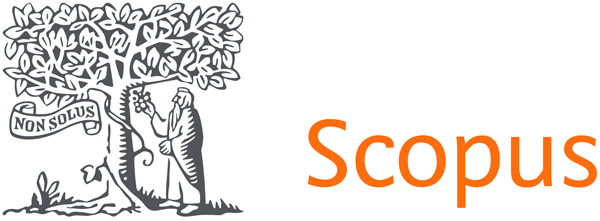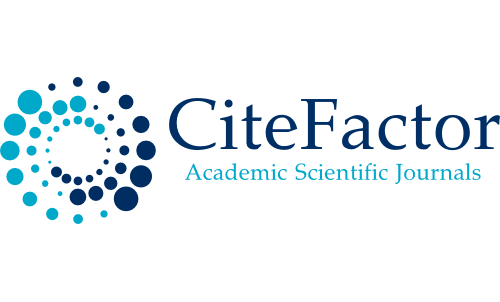ABORTION AND (IN) COHERENCE OF (DE) CRIMINALIZATION IN THE BRAZILIAN CONSTITUTIONAL ORDER
DOI:
https://doi.org/10.9771/rds.v6i2.61935Keywords:
abortion, decriminalization, human dignity, integrity, moralityAbstract
The article is based on a bibliographical review technique, qualitative research and uses a hypothetical-deductive method with the purpose of examining the theme of abortion, from the perspective of morality and the value of human dignity, asking whether the criminalization of conduct is still legitimized in these times. current. The existence of a moral and/or legal obligation imposed on women to carry the pregnancy to term and its consequences is investigated; the judicial decision is highlighted as fair and equitable in relation to the Brazilian constitutional order, repeating the theories of Herbert Hart and Ronald Dworkin. Furthermore, it reflects on the limits of the Democratic Rule of Law in protecting the inviolability of human life, addressing the social function of the Constituted Powers in controversial topics, such as abortion. Finally, the importance of female protagonism in breaking social paradigms, legislative and jurisprudential achievements is emphasized, sizing the impact on the Brazilian legal-social reality.
Downloads
References
BRASIL. Constituição (1988). Constituição da República Federativa do Brasil. Brasília, DF, 1988. Disponível: https://www.planalto.gov.br/ccivil_03/constituicao/constituicao.htm
Acesso em: 09/06/2024.
BRASIL. Lei nº 10.406, de 10 de janeiro de 2002. Brasília, DF, 2002. Disponível: https://www.planalto.gov.br/ccivil_03/leis/2002/l10406compilada.htm Acesso em: 09/06/2024.
BRASIL. Decreto-Lei nº 2.848, de 07 de dezembro de 1940. Disponível: https://www.planalto.gov.br/ccivil_03/decreto-lei/del2848compilado.htm Acesso em: 09/06/2024.
BRASIL. Supremo Tribunal Federal (Plenário). ADPF Nº 54/DF. Relator: Ministro Marco Aurélio, julgamento em 12/04/2012. Publicado em: DJe 10/05/2013. Disponível: https://portal.stf.jus.br/processos/downloadPeca.asp?id=136389880&ext=.pdf. Acesso em: 09/06/2024.
BRASIL. Supremo Tribunal Federal (Plenário). ADPF Nº 442/DF. Relatora: Ministra Rosa Weber, julgamento em 22/09/2023. Disponível: https://www.stf.jus.br/arquivo/cms/noticiaNoticiaStf/anexo/Voto.ADPF442.Versa771oFinal.pdf. Acesso em: 05/06/2024.
BRASIL. Câmara dos Deputados. Projeto de Lei nº 1904/2024. Proponente: Deputado Sóstenes Cavalcante. Disponível: https://www.camara.leg.br/proposicoesWeb/prop_mostrarintegra?codteor=2425262&filename=PL%201904/2024. Acesso em: 09/06/2024.
DWORKIN, Ronald. O Império do Direito. Tradução de Jefferson Luiz Camargo. São Paulo: Martins Fontes, 1999.
DWORKIN, Ronald. Levando os Direitos a Sério. Tradução de Nelson Boeira. São Paulo: Martins Fontes, 2002.
DWORKIN, Ronald. Domínio da Vida: aborto, eutanásia e liberdades individuais. Tradução: Jeferson Luiz Camargo. São Paulo: Martins Fontes, 2019.
HART, H.L.A. O Conceito de Direito. Tradução de A. Ribeiro Mendes. Lisboa: Fundação Calouste Gulbenkian.3 ed. Lisboa: Fundação Calouste Gulbenkian, s/d.
OMS – Organização Mundial da Saúde. Clinical practice handbook for quality abortion care. (2023). Disponível: https://iris.who.int/bitstream/handle/10665/369488/9789240075207-eng.pdf?sequence=1 Acesso em: 09/06/2024.
ONU – Organização das Nações Unidas. Declaração Universal dos Direitos Humanos da ONU de 1948. Disponível em: https://www.unicef.org/brazil/declaracao-universal-dos-direitos-humanos. Acesso: 17/05/2024.
SARLET, Ingo Wolfgang. A eficácia dos direitos fundamentais: uma teoria geral dos direitos fundamentais na perspectiva constitucional. 12 ed. Porto Alegre: Livraria do Advogado, 2015a.
SARLET, Ingo Wolfgang. Dignidade da Pessoa Humana: notas em torno da discussão sobre o seu caráter absoluto ou relativo na ordem jurídico-constitucional. In. ALEXY, Robert; BAEZ, Narciso Leandro Xavier; SILVA, Rogério Luiz Nery da (orgs.).Dignidade Humana, Direitos Sociais e Não-Positivismo Inclusivo. Florianópolis: Qualis, 2015b.
TAMANAHA. Brian Z. On the rule of law: history, politics, theory. Cambridge: Cambridge University Press, 2009.
Downloads
Published
How to Cite
Issue
Section
License
Copyright (c) 2024 Authors

This work is licensed under a Creative Commons Attribution 4.0 International License.
- This Journal reserves the right to direct normative, spelling and grammatical alterations in original works, with the intention of maintaining the standard worship of the language, respecting the authors' style.
- The exclusive opinions by the authors are their sole responsibility.
- The licensing rights used by the journal are the Creative Commons Attribution 4.0 International License.
- Copyright belongs exclusively to the authors. Sharing (copying and distributing the material in any medium or format) and adaptation (remixing, transforming and re-adapting the original work for all purposes, including commercial) are permitted, provided that due credit is given for the initial publication in this journal.
- Authors are permitted and encouraged to publish and distribute their work online after publication, as this can increase the impact and citation of the published work (See The Effect of Open Access).













